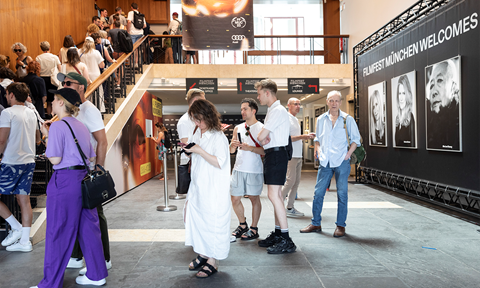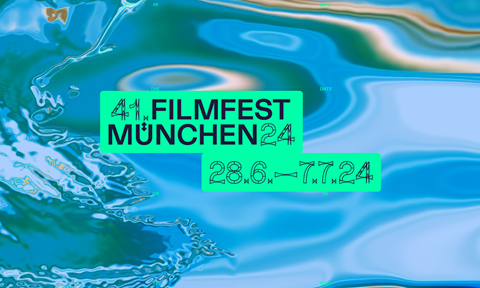WHEN WORLDS COLLIDE


THE POOL as a microcosm of our society: only Doris Dörrie could come up with that idea. The bathers at Germany’s only outdoor pool for women swim topless, in bikinis, swimsuits, and burkinis. Each woman follows a different set of rules, which leads to friction time and again. When a group of completely veiled women excitedly discover the pool, sparks fly. Whose pool is it, and who makes the rules?
This latest film by Dörrie, to whom we pay homage this year, manages to convey not only a summery lightness but also an underlying truth common to many of the films in this year’s selection: a culture clash can only be resolved if people meet in the middle and are willing to learn from each other. This is a truth that the various individuals in THE POOL must ultimately accept.
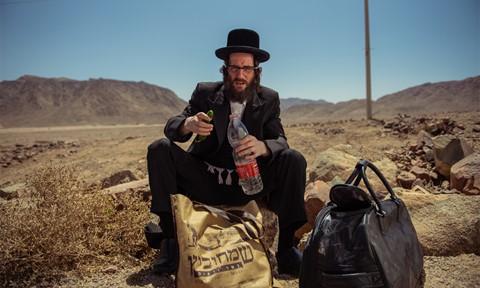
No name restaurant
Similarly lighthearted but with a serious background, NO NAME RESTAURANT is an adventurous and unusual buddy comedy set in and around the Holy Land. To escape his family’s matchmaking attempts, Ben, an Israeli, travels to Alexandria, Egypt, to save what was once the largest Jewish community in the world. When Ben misses his flight and is subsequently thrown off a bus in the Sinai Desert, his only hope lies in a grumpy Bedouin who is in search of his lost camel. These two very different men must cooperate if they are to get out of this hell alive. After that, though, Ben must still deal with his conservative family in Jerusalem. This film by Stefan Sarazin and Peter Keller offers a valuable contribution to cross-cultural understanding and has thus been nominated for the 2022 Fritz Gerlich Prize.
In describing another way that a culture clash can manifest itself, SPEAK NO EVIL by Christian Tafdrup takes an unexpected approach. The plot starts with an idyllic vacation in Tuscany, where a Danish family befriends a Dutch one. A few months later, the Danes accept an invitation from their new friends. What was supposed to be a perfect weekend in the Netherlands soon winds up out of control.

watcher
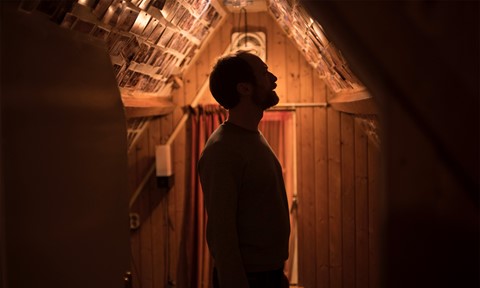
speak no evil
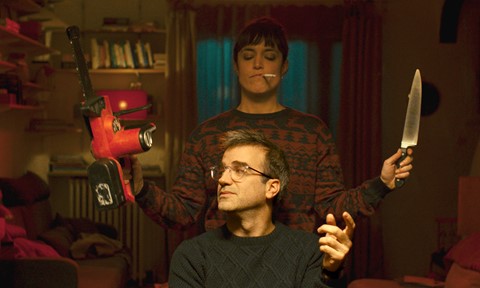
petite fleur
WATCHER by Chloe Okuno also explores this theme in an exciting genre film. An American couple, recently engaged, moves to Bucharest. The man speaks the language and is enthusiastic about his new job, while his wife doesn’t understand a word, spends all day at home in their stylish apartment, and constantly feels like she’s being watched. What’s the real reason she feels this way?
PETITE FLEUR by Santiago Mitre is a black comedy with a celebrity cast about the joys and sorrows of an Argentinian in France, interspersed with some delightful gore. José, a cartoonist, never dreamed that he would one day become a househusband. But that’s exactly what happens when he moves to Clermont-Ferrand with his French girlfriend and their baby. When José goes over to borrow something, his neighbor plays him the jazz standard “Petite Fleur”. The situation escalates, and José’s weekly routine now includes committing murder.
To conclude with, here’s a harsher kind of culture-clash drama. In GODLAND by Hlynur Pálmason, a young Danish priest travels to a remote part of Iceland to build a church and photograph its congregation. But the deeper he goes into the unforgiving landscape, the further he strays from his purpose, his mission, and morality. GODLAND is a powerful and vivid period drama in which one man’s divine mission collides with Iceland’s spiritually charged natural environment. The press and viewers in Cannes described their lasting enthusiasm for this film.
On Tuesday, June 28 from 4:00 to 5:00 pm, we cordially invite you to “Not Really German”, a FILMMAKERS LIVE! talk with Stefan Sarazin and Peter Keller in the Karolinensaal at the Amerikahaus. You can see, hear, and ask questions of our guest of honor, Doris Dörrie, in a FILMMAKERS LIVE! talk entitled “Emancipated and Self-Willed” on Wednesday, June 29 from 6:15 to 7:15 pm in the Theatersaal at the Amerikahaus.
